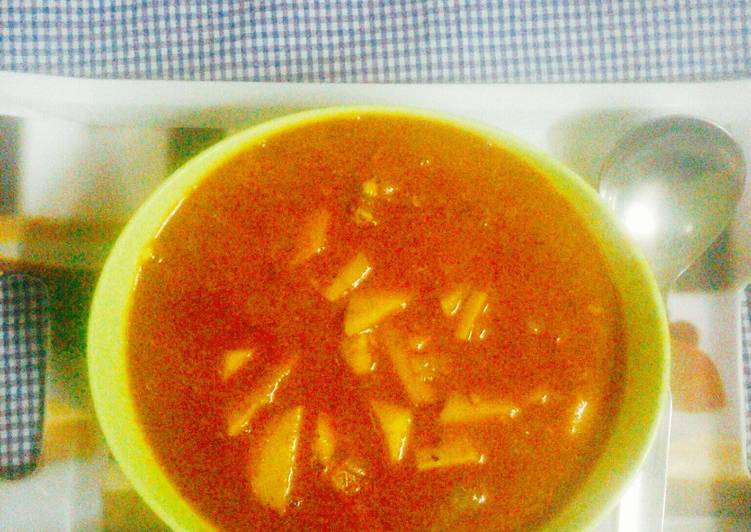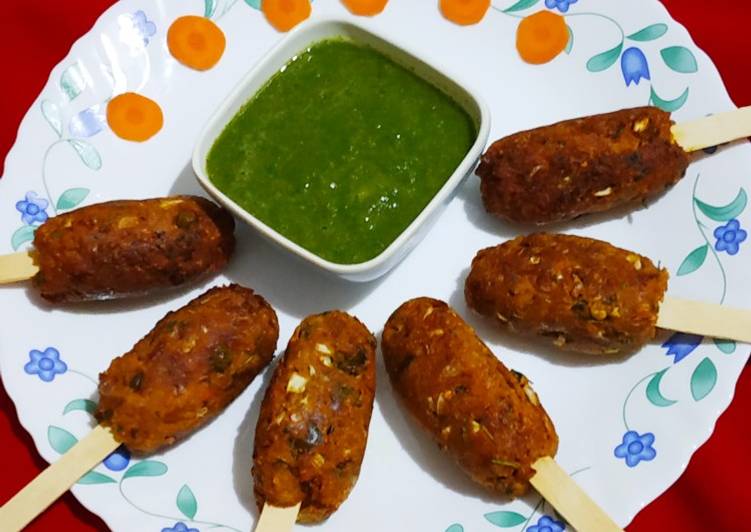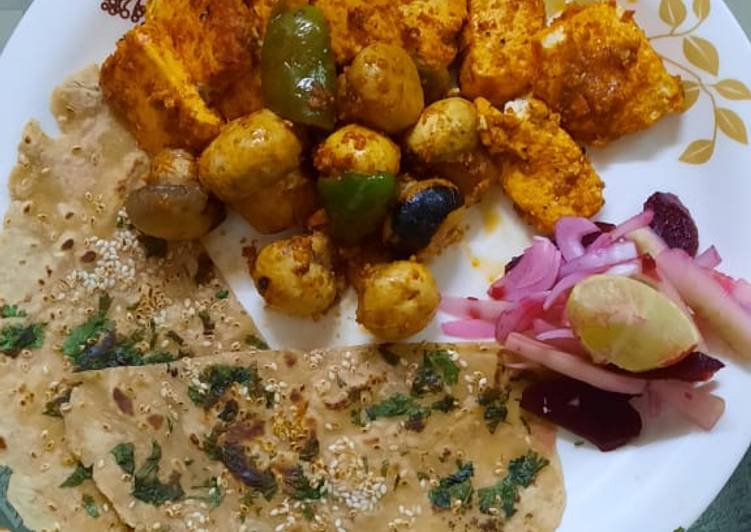
Hey everyone, hope you are having an incredible day today. Today, I’m gonna show you how to prepare a special dish, taro root curry. One of my favorites. For mine, I’m gonna make it a bit tasty. This is gonna smell and look delicious.
Most of the people's favorite curry in South India.such a delicious curry.try to make this recipe. Colocassia or Taro root is an underground root vegetable which is cooked in India. Delicacies are also made of the Colocassia leaves.
Taro Root Curry is one of the most well liked of recent trending meals on earth. It’s simple, it’s quick, it tastes delicious. It’s enjoyed by millions every day. They’re nice and they look fantastic. Taro Root Curry is something that I have loved my entire life.
To get started with this particular recipe, we must prepare a few ingredients. You can cook taro root curry using 13 ingredients and 12 steps. Here is how you can achieve that.
The ingredients needed to make Taro Root Curry:
- Prepare 200 gm Taro root (arbi)
- Make ready 2 tsp mustard seeds
- Make ready 15-16 garlic petals
- Take 4-5 whole & dried red chilli
- Prepare 1 big size tomato, chopped
- Take 1 tsp turmeric powder
- Make ready 1 tsp coriander powder
- Prepare 1/2 tsp jeera powder
- Make ready 1/2 tsp black pepper powder
- Take Salt as per taste
- Get 1/2 lemon, medium size
- Get 1 tsp fenugreek seeds(methi dana)
- Prepare Mustard oil as per requirement
Taro root comes from the taro plant, which is native to Southeast Asia and India and is a staple in In parts of India, it's often cubed and added to curries. And perhaps most commonly known in the U. Colocasia esculenta is a tropical plant grown primarily for its edible corms, a root vegetable most commonly known as taro (/ˈtɑːroʊ, ˈtæroʊ/), or kalo (see §Names and etymology for an extensive list). Taro root or colocasia is known as "seppankilangu" in Tamil.
Instructions to make Taro Root Curry:
- Wash the arbi nicely with clean water.Now trasfer the arbi to a pressure cooker and add some water to it.Pressure cook for 1 whistle over high flame to boil the taro Root. Allow the pressure cooker to cool and then open the lid and take out the boiled arbi in a plate.Peel off all the boiled arbi
- Chop them into several pieces.
- Take the mustard seeds, garlic petals &whole dried red chillies in a mixer jar.Add 2 tbsp water to the jar and then grind them to form a fine paste.
- Now heat some mustard oil in a kadai &add methi seeds to it.After crackling &little colour changing then add ground paste to it.Stir &cook the paste for a few seconds.
- Now add all the powder spices and salt to it.Stir, mix and cook all the ingredients together for a few seconds
- Add the chopped tomatoes and again stir, mix and cook all the ingredients together till the tomatoes become soft and oil begins to separate.
- Now add chopped arbi or taro Root pieces. Stir and mix well.
- Then squeeze the 1/2 lemon.Mix it well.
- Now add water to kadai.
- Allow the gravy to come to a boil.
- Then cover the kadai with a lid and lower the flame to low level & cook taro Root Curry for 10 min.
- Turn off the flame after 10 min and transfer the taro Root Curry to a serving dish & serve it with chapati or paratha or rice.Enjoy this yummy taro Root Curry.
Taro root comes from the taro plant, which is native to Southeast Asia and India and is a staple in diets there as As a starchy vegetable, the taro root contains more carbs than other types of vegetables. Taro root or colocasia is known as "seppankilangu" in Tamil. Usually most South Indians make either seppankilangu roast or curry or add it to buttermilk kulambu (mor kulambu) or aviyal, but this is a very. Sister Fire's I-tal Rundown [Pumpkin and Carrots]. The Most Popular Paleo Root Vegetable.
So that’s going to wrap this up for this special food taro root curry recipe. Thanks so much for reading. I’m confident that you can make this at home. There is gonna be more interesting food in home recipes coming up. Don’t forget to bookmark this page in your browser, and share it to your loved ones, colleague and friends. Thanks again for reading. Go on get cooking!

